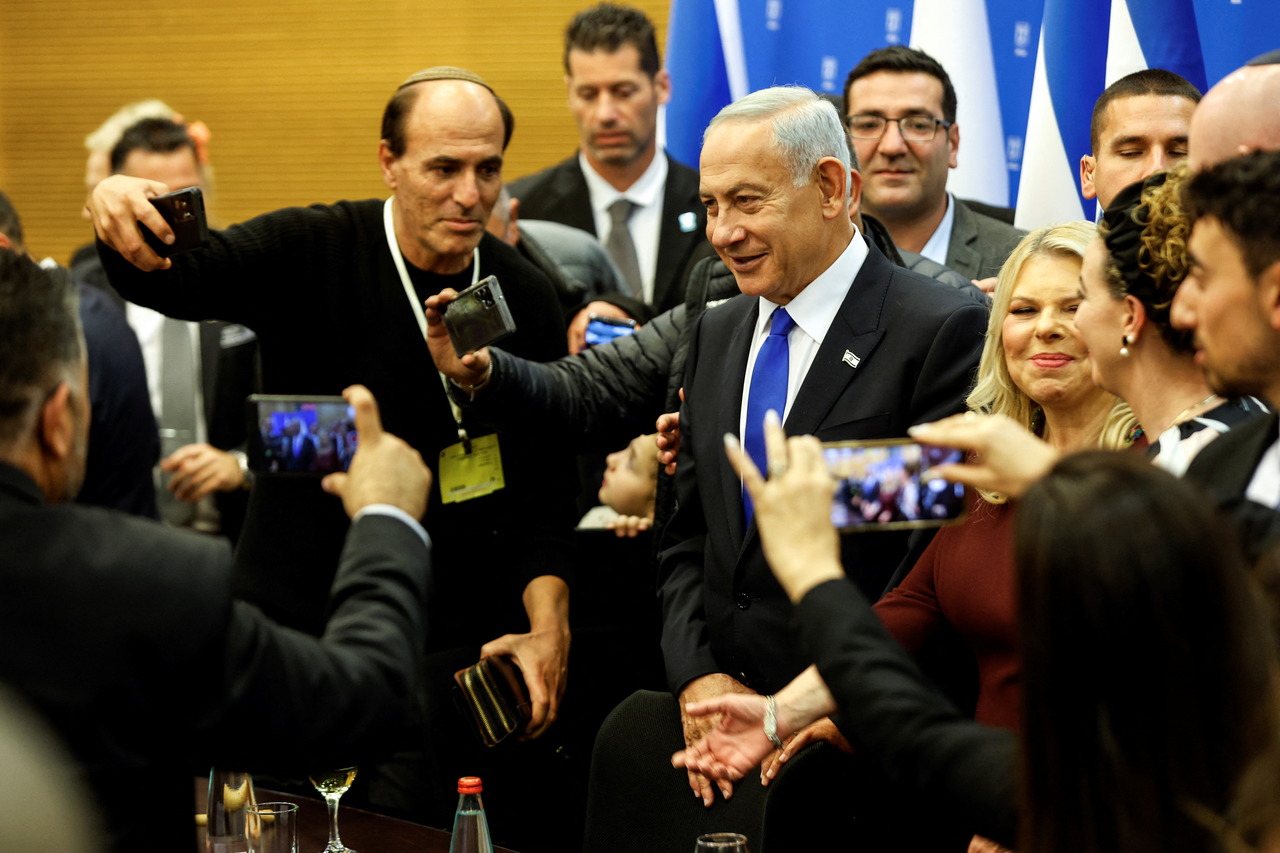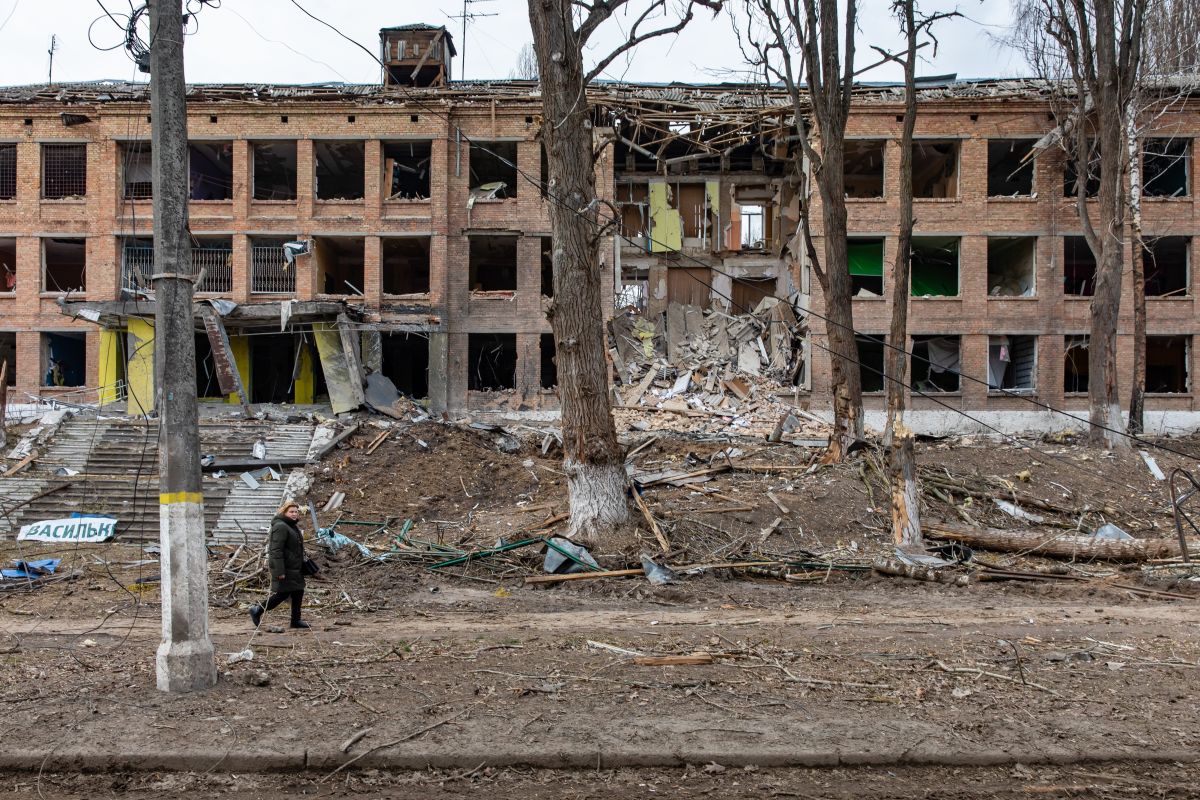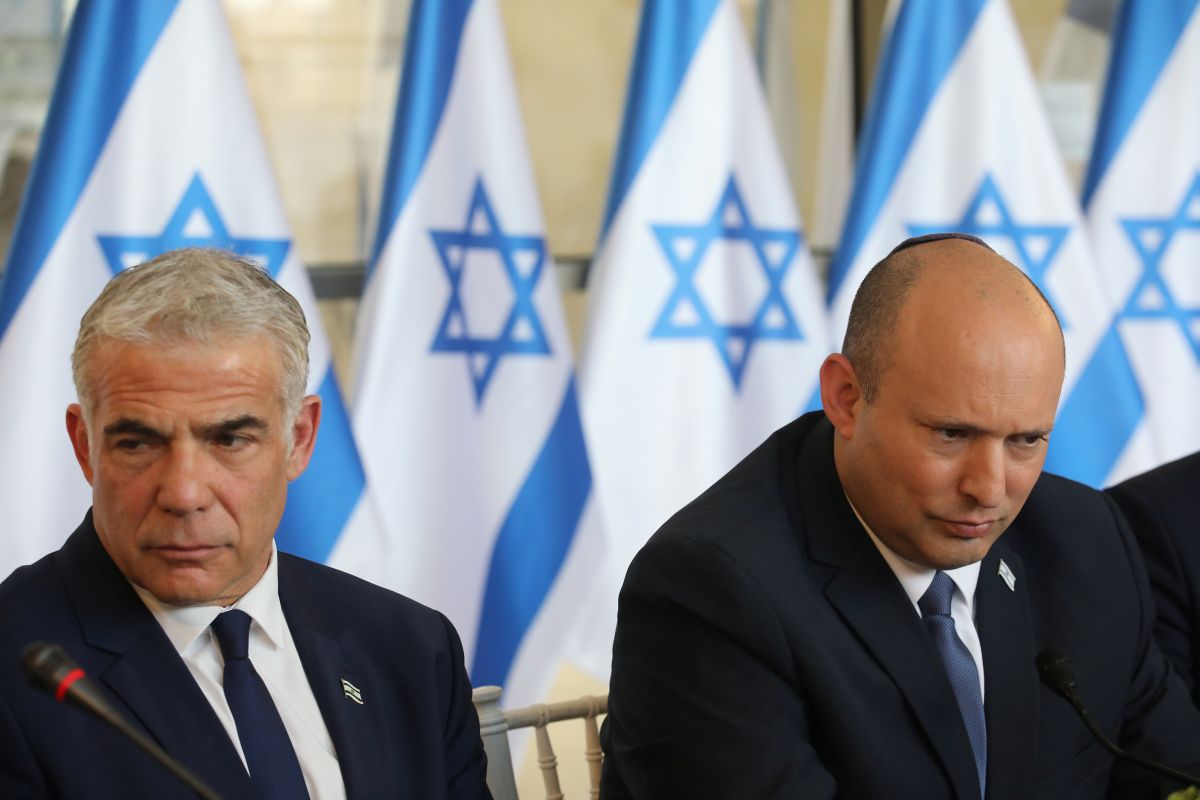For the Sixth Time, Netanyahu Forms New Government
On 29 December, a new cabinet in Israel was sworn in, led by Benjamin Netanyahu and formed by religious and right-wing parties. The participation of far-right politicians in the government and the planned reforms, concerning the judiciary, among others, will exacerbate the divisions in Israeli politics and society. In foreign policy, the regional dimension will be the most prominent, especially normalisation with Arab states and the conflict with Iran.
 AMIR COHEN / Reuters / Forum
AMIR COHEN / Reuters / Forum
Who sits in the new government?
The 1 November parliamentary elections guaranteed a solid majority of 64 seats out of 120 in the Knesset for Netanyahu. His sixth government includes Likud (32 seats), the religious Shas (11) and United Torah Judaism (7), as well as the radical right-wing parties Religious Zionism (7), Jewish Power (6), and Noam (1). Demands of the coalition partners and Likud’s factions influenced the size of the cabinet, which has more than 40 ministerial positions. The government includes politicians associated with extreme right-wing circles, known for their actions and controversial statements against the Arab minority and the LGBTQ community. These politicians include, for example, Bezalel Smotrich (finance minister and the minister responsible for Israel’s administration in the West Bank), Itamar Ben-Gvir (minister of National Security), and Avi Maoz (deputy minister in the Prime Minister’s Office).
What are the most important changes the new coalition wants to introduce?
The most important proposed reforms, from the state system perspective, concern the judiciary. The right-wing camp wants to introduce the possibility for a parliamentary majority to override Supreme Court rulings on the unconstitutionality of laws, thus weakening the control mechanisms of the legislative power by the judiciary in Israel. Government politicians also call for an increase in the participation of political bodies in the process of appointing judges and changes in the functioning of the Attorney General’s office. Cabinet members also announced a number of actions aimed at strengthening the Jewish identity of the state, which will involve legal changes favouring the religious population and a greater allocation of funds to conservative and ultra-Orthodox entities. The state’s support for the settler movement in the West Bank will also be increased and the powers of the security services will be extended, as demanded by members of the coalition.
How can the internal situation in Israel develop?
The political bloc led by Netanyahu has a coherent majority to implement its demands (including those enabling termination of the prime minister’s trial). At the same time, the scale of political concessions to radical politicians and their rhetoric (e.g., regarding rights of minorities) are already generating PR consequences for the prime minister. Netanyahu has announced that he will maintain full control over the government’s policies, which may cause friction with coalition partners who wish to quickly implement their demands. It is very likely that tensions between the government introducing the new reforms with state institutions (the army, courts, schools) and local authorities will intensify as well as divisions and ideological disputes between the progressive and traditional parts of Israeli society. An additional dividing line are the relations between the Jewish and Arab populations in Israel, which have deteriorated since 2021. Although the new government has declared its support in combating problems troubling to the Arab communities (e.g., the low level of public security), the influence gained by politicians known for their anti-Arab rhetoric will have a negative impact on the de-escalation of emerging conflicts. In addition, the highly antagonised political party scene will make it more difficult for the government to cooperate with the opposition.
What does Netanyahu’s return mean for Israeli foreign policy?
Netanyahu announced that his foreign policy goal will be to intensify actions aimed at Iran’s nuclear programme and that country’s influence in the region, as well as establishing official relations with Saudi Arabia as part of the normalisation process. It is highly probable that relations with the Palestinians will deteriorate, although the argument of maintaining new partnerships with the Arab states may be used by Netanyahu to tone down the most antagonising activities of the coalition partners. Most likely, the improvement of relations with Turkey will continue. Increased support for Jewish settlements in the West Bank and the risk of a serious escalation of violence in the Palestinian territories will lead to a deterioration of relations with the U.S. and the EU. It is likely that bilateral relations with the closest European allies (e.g., Hungary) will be used to block criticism from EU institutions. A change in Israeli policy towards the Ukrainian-Russian war (e.g., starting arms deliveries) is unlikely.





